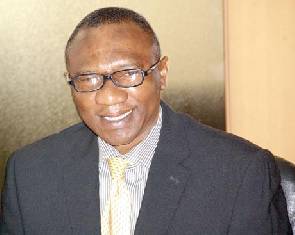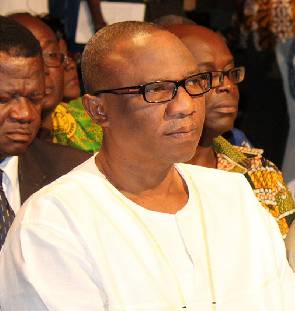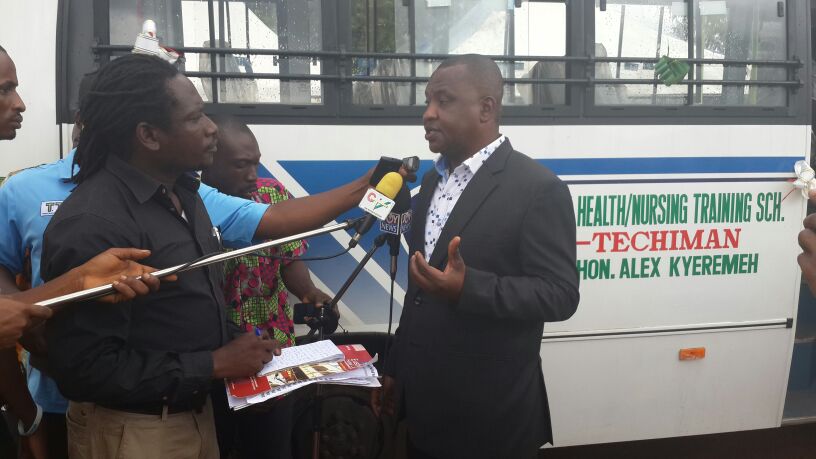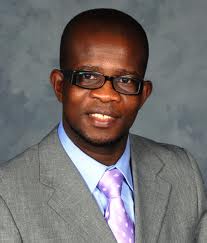 Director-General of the Ghana Broadcasting Corporation (GBC), Major Albert Don-Chebe (Rtd) has indicated that his outfit is in desperate need for funding, therefore the revival of the TV license fee is justified.
Director-General of the Ghana Broadcasting Corporation (GBC), Major Albert Don-Chebe (Rtd) has indicated that his outfit is in desperate need for funding, therefore the revival of the TV license fee is justified.
He explained that following years of poor funding, GBC has failed to deliver quality service to Ghanaians.
“GBC has suffered tremendously from lack of funding and this has obviously impacted negatively on its ability to do the things that it’s been mandated to do.… Because of the several years of poor funding, it will definitely impact on equipment, motivation, and the state of the whole organization,” he said.
“…this is the model for ensuring that you get top notch, first class public service broadcasting,” he explained on the Citi Breakfast Show on Tuesday.
On Monday, the National Media Commission (NMC) announced that the collection of television (TV) license fees will resume in August 2015.
The chairman of the Commission, Kabral Blay-Amihere said the money will place GBC on a better financial footing to fulfill its public broadcasting mandate under the 1992 Constitution.
The announcement has been received with mixed reaction from the public who argue that paying the money to support GBC is unjustified because of the poor service they render to the viewing public.
But Don-Chebe said the revival of TV license fee is very necessary since it will not only be beneficial to his outfit.
Out of the amount, GBC will take tha largest share of 72%, the Ghana Independent Broadcasters Association (GIBA) will take 15%, the Media Development Fund will take 4%, the National Media Commission will take 4%, Film will take 2% and for managing the collection, GBC will take an extra 2% which will bring their number to 75%.
Don-Chebe indicated that GBC is mandated to cover national events but despite the funding shortfall, the station “has religiously continued to cover events that private media will not spare a minute for…”
This, he said has made them unattractive to commercial advertisers “because we take off commercial programmes anytime there is a national event.”
TV license has existed since 1966
The GBC Director-General mentioned that the TV license has been in existence since 1966 but the only problem the competition encountered was the non-revision of the fees.
In 1991 however, it was revived but another challenge it faced was that the fees once again was never reviewed despite the instability of the national currency.
“There has always been in existence, the TV license; the only challenge was that the fee was set in 1991 and has never seen any review in spite of the fact that our currency has gone through all kinds of somersault.”
However, the policy was suspended in 2010, because according to him, “there was no way you could go round with logistics and mobilize 30 pesewas per household per year.”
“The last attempt cost GBC money than it collected so the collected was suspended. In the interim, we went to Parliament and got a long overdue review of the 30 pesewas to GHC 36,” he added.
TV license not for TV content
Don-Chebe clarified that the TV license is not for the payment of content but for the installation of a television set.
“In principle, the TV license fee is not payment for programmes or content. It is for payment to own or install a television set. It has nothing to do with content.’
“It is in South Africa, France, UK, it is everywhere in the world. The reason why our broadcasting was suffering is because of funding and that is why the TV license fee was established in the first place…it’s late in the day but it’s better late than never.”





